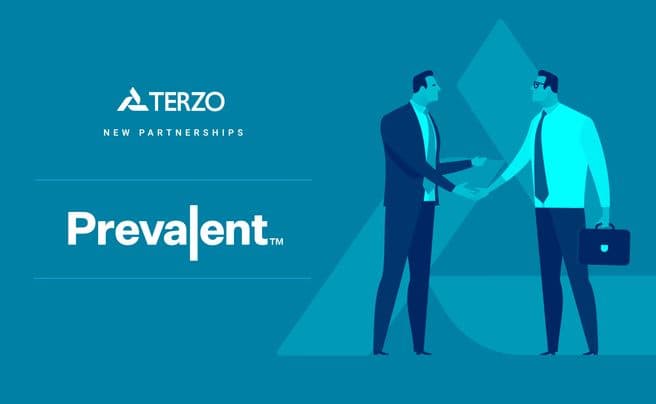In response to the continued strain on supply chains, many businesses have started using multiple suppliers to build more resilience. However, this introduces complexity and risk. Learn more about the role of AI in supplier risk management and how it can be used to implement contingency plans, reduce costs, and increase your supply chain’s efficacy.
Why Supplier Risk Management Matters
Suppliers can expose your company to risks on multiple levels. The most obvious is financial risk, which can occur if you pay a supplier but they don’t deliver or if they don’t have the materials you need.
You can be left in the lurch to deal with delayed timelines and unhappy customers. In addition to financial, operational, and strategic risks, you can also face regulatory compliance risks in certain industries and reputational damage from associating with unethical suppliers.
The Evolution of Supplier Risk Management
In 2008, supplier risk management first became a significant issue when the FDIC issued official advice on third-party risk management. This is when taking a structured, risk-based approach to managing suppliers gained widespread adoption.
The practice soon spread to more industries as finance, health care, nonprofits, and other regulatory bodies began issuing their own guidance. Today, federal and state regulations have joined industry standards for governing how organizations address supplier risk management.
 How AI Integrates With Supplier Risk Management
How AI Integrates With Supplier Risk Management
One significant advantage of modern supply chain risk management is the use of artificial intelligence (AI) and machine learning (ML). AI applications provide valuable insights into supply chain operations and shift your strategy from reactive to proactive when it comes to enhancing supplier risk analysis. Here are some of the most innovative uses of AI in supplier risk management software.
Predictive Analytics in Risk Assessment
Although no supply chain risk management software will allow you to see into the future, you can come as close as possible with an AI-based predictive model. AI provides predictive insights based on large datasets, along with real-time insights based on data from multiple sources, to foresee potential risks so that you can anticipate supply chain disruptions before they occur.
Generative AI for Enhanced Decision-Making
For risk management in supply chain strategy, generative AI is driving more effective decision-making. It helps business leaders create and evaluate multiple strategies based on business objectives. That means your organization can explore more AI-driven risk management options in much less time and implement contingency plans to mitigate these risks.
Key AI Technologies in Supplier Risk Management
The following technologies can simplify supplier relationship management and reduce your risk exposure.
Automated Audits
Supplier audits drive effective decision-making and give you insight into supplier performance. However, conducting these audits manually is an expensive and time-consuming process that ties up resources that could be better used in high-value activities.
Automated audits analyze contractual data and other sources to provide data-driven knowledge and insights. They help us better understand how suppliers perform based on predetermined standards.
Real-Time Compliance Checks
AI in supplier risk management can also continuously monitor supplier activity for regulatory requirements, industry standards, and contractual agreements. If the system detects an anomaly, it can alert you so that you can take quick action to rectify it before the situation escalates.
Supplier Scoring and Segmentation
When you’re using multiple suppliers, you need to keep track of them and identify the best performers so you can make strategic supplier contracting decisions. AI simplifies supplier scoring and segmentation by analyzing supplier data and updating it in real-time based on parameters such as risk profile, geographical location, and historical performance.
Benefits of AI-Driven Supplier Risk Management
AI applications deliver significant benefits over traditional supplier and contract management solutions in terms of speed, insight, and efficiency.
Proactive Monitoring and Early Warning Systems
AI continuously monitors all of your supply chain activity for any signs of unusual activity that could have negative consequences for your organization. If it detects a vulnerability, it will notify you so that you can take proactive measures to address the situation.
Increased Efficiency and Reduced Costs
Supplier risk management software can optimize almost all aspects of your supply chain and eliminate many risks through features such as the following:
Demand forecasting
Inventory optimization
Optimized logistics and route planning
Effective supplier management
Optimizing procurement strategies
Reduced waste
Improved strategic decision-making
Lower procurement costs
 Enhanced Collaboration With Suppliers
Enhanced Collaboration With Suppliers
AI strengthens supply-chain partnerships by providing transparency in all aspects of risk management in supply-chain management. You can share this evaluation data with suppliers so you can work together to meet common goals and do your due diligence. Trust is the foundation of all effective relationships, and comprehensive data analytics creates a win-win situation for your brand and everyone involved.
Challenges in Implementing AI in Supplier Risk Management
Despite the many advantages of using AI to manage supplier risk, implementing it effectively can present some challenges.
Data Privacy and Security Concerns
Anytime you share data, you risk exposing it to hackers. Fortunately, there are comprehensive cybersecurity frameworks that outline best practices for protecting your data from ransomware, such as encryption and access control. To maintain confidentiality, your software vendor must have an established track record of strong security protocols against cyber risk and data breaches.
Training and Skill Development
Even the best programs are only as good as the people using them. To get the most out of your software, you need to thoroughly train your staff on how to use it. Conduct comprehensive training based on roles so you don’t overwhelm your staff with information they won’t use. Proper training and skill development are key for your business’s organizational culture.
Integration With Existing Systems
Modern software solutions should easily integrate with the platforms and applications you currently use on the same dashboard. Look for technology that seamlessly integrates with your existing systems for better supply chain visibility.
 FAQs on Implementing AI in Supplier Risk Management
FAQs on Implementing AI in Supplier Risk Management
What is the role of artificial intelligence in supplier risk management?
Artificial intelligence can help you manage supplier risk by helping you make decisions based on actionable insights into risk mitigation, regulatory compliance, and optimization.
What is the role of AI in risk management?
Using data analytics, AI can give you predictive insights into potential risks and hazards based on global issues, natural disasters or weather patterns, supplier compliance, and other factors.
How does AI improve supply chain management?
AI technology can help you optimize all aspects of supply chain management, from routes and logistics to inventory. It provides visibility into all stages of the supply chain, from raw materials to finished products and goods.
How will tools such as artificial intelligence help supply chain professionals better manage risk in the future?
As AI technology continues to develop, it will likely improve analytics, provide even more granular data, and drive more effective data-driven insights to head off future risks based on predictive capabilities.
Embrace AI With Terzo for a Resilient Supply Chain
In addition to diversifying and fortifying your supply chain, incorporating AI in supplier risk management can help you build a more resilient supply chain. To learn more about how Terzo can help you improve workflow and reduce costs with AI, reach out to our experts for a consultation.




